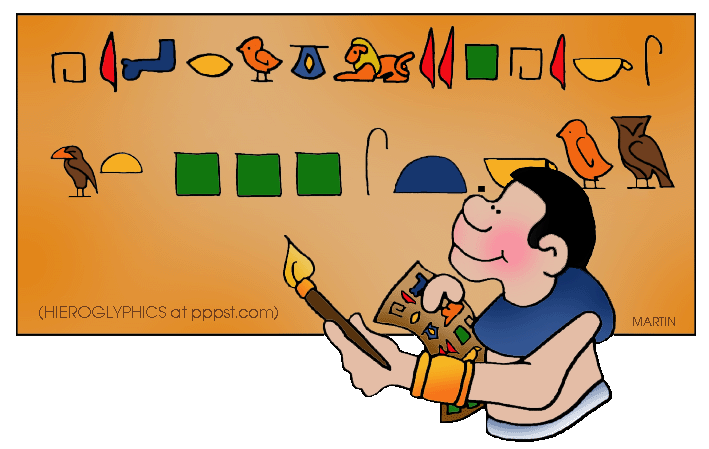
Ancient Egypt for Kids
House of Books and the Library at Alexandria
Any library in ancient Egypt was known as a House of Books. Books or scrolls were written on papyrus, rolled, and saved very carefully. Books included religious texts, spells, lists, letters, triumphs, medical knowledge, mathematical knowledge, scientific knowledge, stories of the gods, and more. Teachers and priests at each House of Life used books from the temple library.
The most famous House of Books was the library at Alexandria. Alexandria was a city on the coast of ancient Egypt, established by Alexander the Great. The library he built was known as the Great Library. This library, as well as the museum he built in Alexandria, supposedly burnt down in the 3rd century A.D., destroying irreplaceable scrolls (books) written on papyrus. No one knows for sure if the scrolls were in the library when the fire broke out. Archaeologists have found little physical evidence in the ruins that there was a fire at all, but then, it is unlikely that they would. Among archaeologists and historians, there is a rather dim but persistent hope that perhaps the scrolls never burned at all. Perhaps they were taken away, moved somewhere else for safe keeping, and the fire started to hide that fact.
What historians do know is that when Alexander arrived in Egypt, the people were delighted at first. The Persians had taken over Egypt. Alexander and his army chased the Persians away. Loving scholarship, but without understanding the Egyptian people, Alexander gathered an enormous number of Egyptian books and scrolls from the small temple libraries all over the country. He stored these scrolls in the huge library he built at Alexandria. Ancient Egyptians scholars and students in the small temple schools were upset. They needed those materials to teach. They supported themselves in great part by copying texts from the Book of the Dead and selling them in the marketplace. Yet, they were grateful to Alexander for saving them from Persian rule.
The Egyptian people tried very hard to believe that Alexander was a living god, in fact a pharaoh. They made up several rumors about his parents that would justify his divine right to rule. When Alexander moved on to conquer other places, he left a couple of his people, two Greeks, along with some appointed governors, in charge of Egypt. They were not strong leaders. And the people really did not believe that Alexander was a pharaoh. Perhaps the librarians in Alexandria saw a chance to hide their wealth of spells and enchantments and lists and letters from conquering eyes, and took it.
One thing is for certain - if the scrolls from the library at Alexandria do exist and are found someday, it would be an amazing discovery!

Explore Ancient Egypt
Ancient Egypt for Kids
Geography, History, Government
Two Lands,
Unification,
King Menes
The Many Uses of Papyrus & Making Paper
Time Keeping and Shadow Clocks
Daily Life
Professions/Jobs
Professions,
Occupations
&
Jobs
Religion - Mummies, Gods, Goddesses, Myths and More
Gods & Goddesses of Ancient Egypt
Many Religious and Joyous Festivals
Canopic Jars (also spelled Canpic)
Games
Inventions and Achievements
Animals
Interactive Quiz Questions with Answers about Ancient Egypt by Topic
Five Themes of Ancient Egypt Geography
Ancient Egypt Arts & Architecture
Ancient Egypt Science & Inventions
Ancient Egypt for Teachers
Activities and Projects for Ancient Egypt
Lesson Plans and Units for Ancient Egypt
Vocabulary Lists and Interactives with definitions
Games: Free Interactive online for Kids to learn more about Ancient Egypt